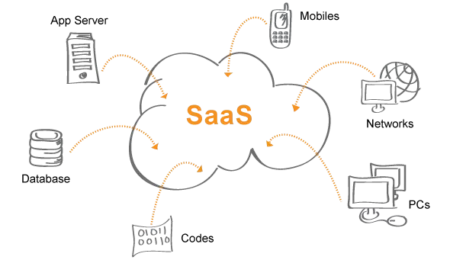Tracking Your Business Finance: A Guide to Better Management

As a business owner, you know how important it is to keep track of your finances. From paying bills to calculating profits, having a handle on your financial situation is critical to the success of your business. However, with so many financial transactions taking place, it can be challenging to keep track of everything. This is where tracking your business finance comes in. Tracking business finance refers to the process of monitoring and managing a company’s financial information and transactions. This includes tasks such as recording and analyzing income, expenses, and cash flow, preparing financial statements, creating budgets, and monitoring financial performance. The goal of tracking business finance is to provide valuable insights into a company’s financial position and help make informed decisions about spending, investments, and other financial matters. By keeping accurate records and regularly reviewing financial information, businesses can ensure that they are making the most of their resources, managing their finances effectively, and staying on track towards their financial goals.
In this blog, we’ll explore the importance of tracking your business finance and provide you with some tips on how to do it effectively.
Why Track Your Business Finance?
Helps you make informed decisions: By keeping track of your business finances, you will have a clear picture of your financial situation. This information can help you make informed decisions about your business, such as whether to invest in new equipment or hire new employees.
Avoids overspending: Keeping track of your finances can help you avoid overspending, as you will have a clear understanding of your income and expenses.
Helps with tax preparation: Accurate financial tracking makes tax preparation much easier and less stressful. You’ll have all the information you need to file your taxes accurately and on time.
Enhances transparency: When you keep track of your finances, you’re creating a transparent system that anyone in your organization can understand. This can help build trust and accountability.
Tips for Effective Financial Tracking
Use accounting softwares: There are many software programs available that can help you track your business finances. These programs make it easier to organize your financial information, create financial reports, and keep track of your cash flow.
Keep receipts: Whether you use software or not, it’s important to keep all of your receipts. This will ensure that you have a record of all your transactions, which will be helpful in the event of an audit.
Create a budget: A budget is a roadmap for your business finances. By creating a budget, you’ll be able to see where your money is going and make adjustments as needed.
Regularly review your finances: Don’t wait until the end of the year to review your finances. Make a habit of regularly reviewing your financial statements to see how your business is doing and make adjustments as needed.
Monitor cash flow: Monitoring cash flow is critical to the success of your business. Keep track of the money coming in and going out of your business and take action to manage your cash flow effectively.
Separate business and personal finances: It is important to separate your personal and business finances. This will make it easier for you to track your business finances and avoid confusion between the two.
financial advisor. They can help you understand your financial statements, develop a budget, and create a plan to achieve your financial goals.
Here are some examples of tools that can be used to track business finance:
QuickBooks: A popular accounting software that allows businesses to manage their finances, including invoicing, expense tracking, and financial reporting.
Xero: A cloud-based accounting software that provides real-time visibility into cash flow, expenses, and other financial data.
Wave: A free, cloud-based accounting software that offers invoicing, receipt tracking, and financial reporting features.
FreshBooks: An easy-to-use invoicing and accounting software designed specifically for small businesses.
Mint: A personal finance app that allows businesses to track their spending and income, categorize transactions, and create budgets.
Zoho Books: A cloud-based accounting software that provides invoicing, expense tracking, and financial reporting features.
Microsoft Excel: A spreadsheet program that can be used to create budget templates, track expenses, and perform financial analysis.
Personal Capital: A finance tracking app that provides investment tracking and budgeting tools.
These tools can help businesses keep track of their finances, streamline their accounting processes, and make informed decisions about their finances.
Conclusion
Tracking your business finance is critical to the success of your business. By following these tips, you can effectively manage your finances and make informed decisions about your business. With accurate financial tracking, you’ll be able to avoid overspending, make tax preparation easier, and enhance transparency within your organization.
Subscribe below to receive business related emails.
subscribe below to receive business/consumer related emails from sumbor.






